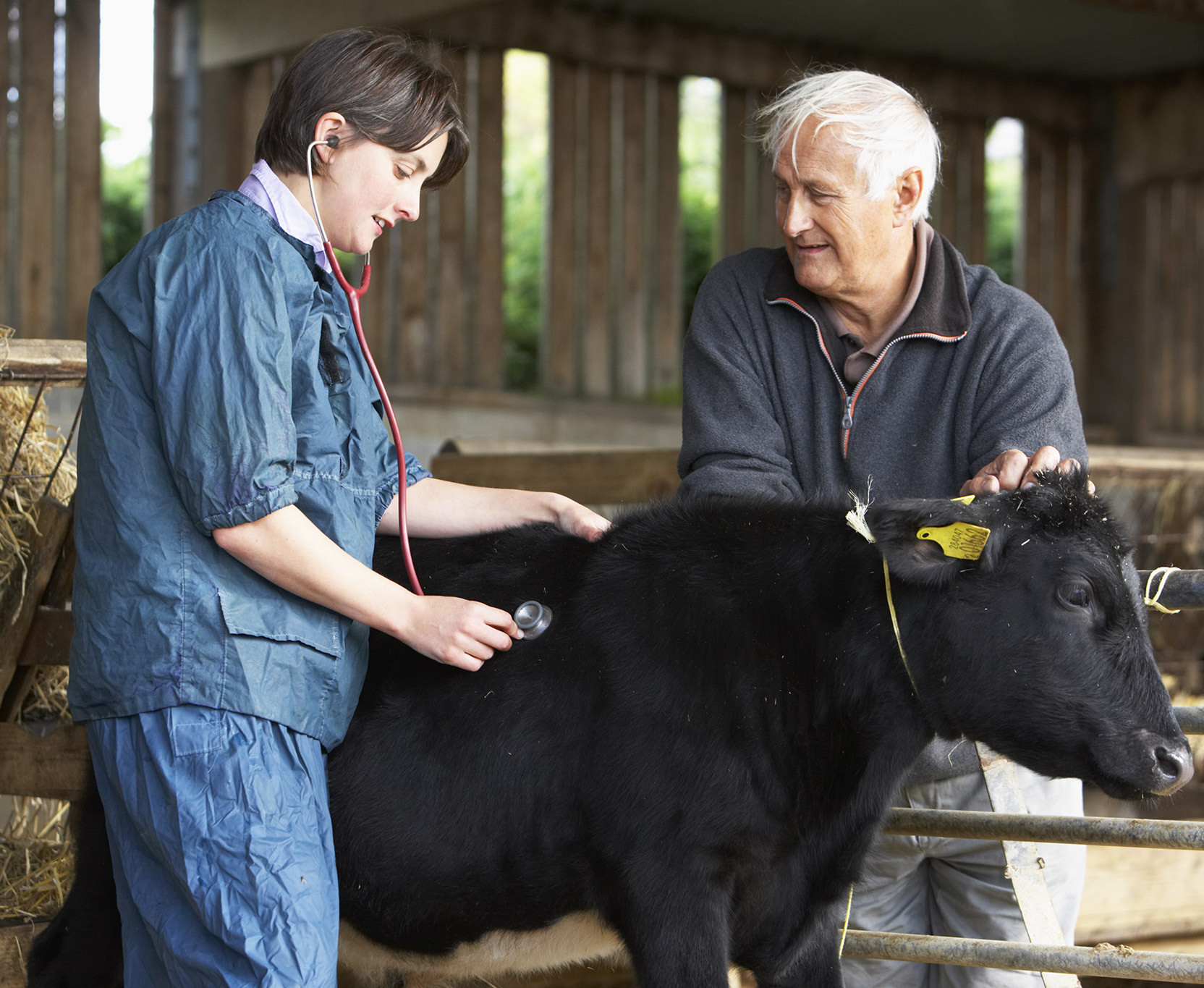Attention to animal health is important when raising livestock. On organic and alternative farms, it may be even more critical. Due to the limited use of antibiotics and often smaller size, disease introduction and spread can be especially damaging. One tool you can use to help monitor and maintain the health of your livestock is diagnostic testing. This type of testing can detect diseases and help you make informed decisions for animal care and well-being.
What is diagnostic testing?
Diagnostic tests are tools used to evaluate health states and identify diseases. In addition to diseases, diagnostic tests can also be used to confirm pregnancy. A list of diseases tested for at the Iowa State University Veterinary Diagnostic Laboratory can be found here. Some examples include the Avian influenza virus, Bovine leukemia virus (BLV), Bovine viral diarrhea virus (BVDV), Porcine Reproductive & Respiratory Syndrome Virus (PRRSV), Brucella, and many more. These tests may use bodily fluid, tissue, or feces. The sample required type depends on the test.
Early disease detection
A major benefit of diagnostic testing is early disease detection, allowing for quick action and treatment. Early treatment reduces the risk of disease spread. Early detection also can allow for reduced use and reliance on antibiotics. Regular testing can also help identify problem areas on farms, which may contribute to a larger issue, such as high mortality rates, lower production, or lower feed efficiency. Regular monitoring of diseases like mastitis on dairy farms can help farmers identify trends and make informed decisions. Diagnostic testing can also be done as part of necropsies to help prevent further deaths.
Biosecurity and animal welfare
Diagnostic testing can help maintain biosecurity on organic or alternative farms. Regular testing can help reduce the risk of disease outbreaks. When purchasing or selling animals, consider running diagnostic tests to ensure the animals entering or leaving your herd are disease-free. In dairy cattle, you may want to see Johnes, BVDV, BLV, and mastitis test results before bringing new cattle onto your farm or ranch. The risk of certain diseases is often region-dependent, so talk with your veterinarian about disease risks in your area. Monitoring animal health through diagnostic testing also helps ensure that animals receive appropriate care and treatment, contributing to improved animal welfare.
Pregnancy testing
Another common use of diagnostic testing is pregnancy testing, especially for ruminant livestock. These tests can be run on blood or milk as early as 28 days after breeding, giving results in just a few days. This can allow you to make earlier breeding decisions, helping your livestock be as productive and efficient as possible. You can find how to take blood samples here.
Feed and soil testing
Testing your feed lets you know the nutritional value and quality and best match it to the livestock and production stage you feed it to. To determine the quality of your forages, see a list of certified hay samplers here. The cost per sample often is around $20 – $30. Soil testing can optimize crop production, protect the environment, and improve the nutritional value of crops. Learn more about soil testing here.
Timing, testing, and veterinary consultation
Diagnostic testing has a quick turnaround, often giving you answers in just a few days. When deciding to utilize diagnostic testing, ensure you have a plan in case your tests return positive. Other things to consider are herd cost, interpreting results, and limited testing facilities.
Diagnostic testing can benefit any herd, regardless of size or management practices. Talk to your veterinarian about diagnostic testing and how it might benefit your farm.
Resources:
The Cattle Site – What is PCR?
Progressive Dairy – Maximizing laboratory diagnostic testing in dairy cattle
ISU Veterinary Diagnostic Laboratory – Diagnostic Tests
The National Forage Testing Association

